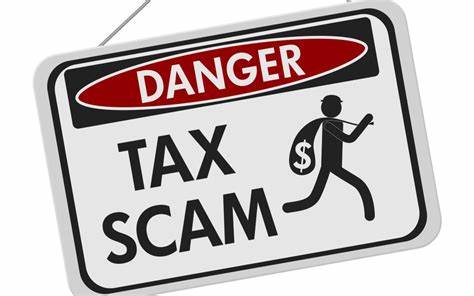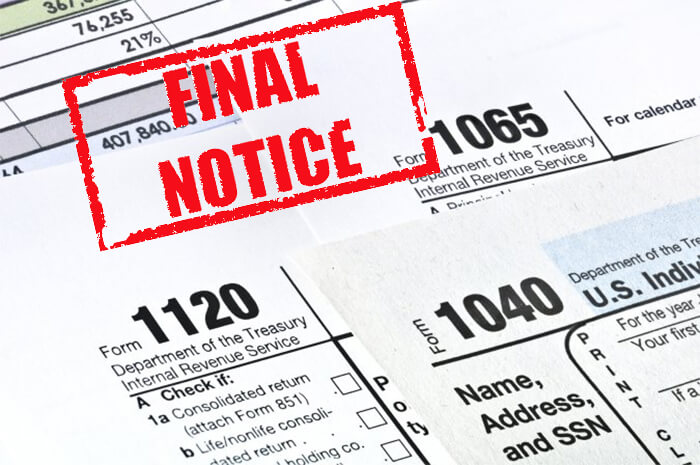
by Renee Lawson | Apr 7, 2025 | Tax Preparation, Tax Resolution
Dealing with a tax debt can be a stressful experience, especially when you’re unsure how long the IRS has to collect what you owe. Fortunately, the IRS is bound by a statute of limitations, which limits the amount of time they have to pursue collection on a tax debt. Understanding this timeline is crucial for taxpayers facing collection efforts or seeking a resolution.
In this blog post, we’ll explore the statute of limitations on tax debt, exceptions to the rule, and how you can take steps to resolve your tax issues effectively. If you’re struggling with tax debt, Action Tax Relief is here to help.
What Is the IRS Statute of Limitations on Tax Collection?
The statute of limitations for IRS tax collection is generally 10 years. This means the IRS has 10 years from the date the tax debt was assessed to collect the outstanding balance. Once this period expires, the IRS can no longer legally pursue collection, and the debt is effectively erased.
Key Points About the 10-Year Rule:
- The 10-year clock starts on the date the IRS officially assesses the tax.
- This date is typically when you file your return, or if you fail to file, when the IRS prepares a substitute return on your behalf.
- Penalties and interest accrue during the 10-year period, potentially increasing the amount owed significantly.
It’s important to note that while the statute of limitations is a powerful protection for taxpayers, the IRS will use every tool at its disposal to collect the debt within this time frame.
Exceptions to the 10-Year Rule
There are several scenarios in which the statute of limitations may be extended or paused, giving the IRS more time to collect. These include:
Filing for Bankruptcy
If you file for bankruptcy, the statute of limitations is temporarily suspended during the period your case is pending. Once the bankruptcy process concludes, the IRS will resume its collection efforts, and the 10-year clock will pick up where it left off.
Submitting an Offer in Compromise (OIC)
When you submit an Offer in Compromise, the statute of limitations is paused while the IRS reviews your application. If your OIC is rejected, the clock resumes. However, if your offer is accepted, your debt will be settled, and the statute becomes irrelevant.
Leaving the Country
If you leave the United States for an extended period, the statute of limitations may be suspended. The IRS considers absences from the country as interruptions to the collection timeline, ensuring they have ample opportunity to pursue the debt upon your return.
Entering into an Installment Agreement
While an installment agreement doesn’t pause the statute of limitations, it can impact how quickly the IRS pursues collection. By entering into a payment plan, you demonstrate good faith in resolving the debt, potentially preventing aggressive enforcement actions.
What Happens After the Statute of Limitations Expires?
Once the 10-year period expires, the IRS can no longer legally enforce collection of the debt. However, the expiration of the statute doesn’t automatically remove the debt from your account. The IRS may file a Notice of Federal Tax Lien, which can remain on your credit report until you take action to address it.
Steps to Address Expired Tax Debt:
- Verify the Statute of Limitations: Confirm the assessment date and calculate whether the 10-year period has passed. A tax resolution professional can help with this process.
- Request a Transcript: Obtain your IRS account transcript to review all relevant dates and ensure accuracy.
- Take Action to Remove Liens: If a lien remains after the statute expires, work with the IRS to have it released.
How to Resolve Tax Debt Before the Statute Expires
Waiting for the statute of limitations to run out may seem like an appealing option, but it’s not always the best course of action. The IRS has powerful tools at its disposal, including wage garnishments, bank levies, and property seizures, to collect debts before the statute expires. Taking proactive steps to resolve your debt can save you from financial hardship and stress.
Options for Resolving Tax Debt:
- Installment Agreements: Spread your payments over time with a manageable monthly plan.
- Offer in Compromise: Settle your debt for less than the full amount owed.
- Currently Not Collectible Status: Temporarily halt collection efforts if you’re experiencing financial hardship.
Each option has its own eligibility requirements and benefits. A tax resolution professional can help you determine the best strategy for your situation.
Why Professional Help Matters
Navigating IRS rules and regulations can be complex, especially when dealing with tax debt and the statute of limitations. A tax resolution company can:
- Analyze your financial situation to identify the best resolution options.
- Communicate with the IRS on your behalf to negotiate favorable terms.
- Ensure compliance with all filing and payment requirements.
Protect Yourself from Future Tax Issues
Once you’ve resolved your tax debt, it’s essential to stay compliant with all future tax obligations. Here are some tips to avoid falling into debt again:
- File on Time: Always file your tax returns by the deadline to avoid penalties.
- Make Estimated Payments: If you’re self-employed or have irregular income, make quarterly estimated payments to stay on track.
- Keep Accurate Records: Maintain organized records of your income, expenses, and deductions.
Conclusion
Understanding the IRS statute of limitations on tax debt is a critical step in managing your financial future. While the 10-year rule provides a clear timeline, exceptions and complexities can arise. Taking proactive steps to resolve your tax debt not only prevents enforcement actions but also provides peace of mind.
At Action Tax Relief, we’re committed to helping taxpayers like you overcome IRS challenges and achieve financial freedom. Call us today at 937-268-2737 or visit www.ActionTaxRelief.com to schedule a consultation. Don’t wait—take control of your tax situation now.

by Renee Lawson | Mar 24, 2025 | Tax Preparation, Tax Resolution
Dealing with the IRS can feel overwhelming, especially if you owe more than you can pay upfront. Thankfully, the IRS offers payment plans to help taxpayers settle their debts over time. By understanding the process and knowing how to negotiate effectively, you can take control of your tax situation and reduce stress. At Action Tax Relief, we specialize in helping clients like you navigate the IRS payment plan process. Here’s a step-by-step guide to get you started.
Step 1: Understand Your Tax Debt
Before you can negotiate a payment plan, you need to have a clear understanding of your tax liability. Here’s what to do:
- Review IRS Notices: Carefully read all correspondence from the IRS to determine how much you owe, including penalties and interest.
- Confirm the Amount: Cross-check the IRS’s numbers with your own records to ensure there are no discrepancies.
- Know Your Deadlines: The IRS provides deadlines for resolving your tax debt, so act quickly to avoid additional penalties.
Step 2: Explore Your Payment Plan Options
The IRS offers several payment plan options depending on your financial situation and the amount you owe. These include:
- Short-Term Payment Plan: For debts you can pay off within 180 days.
- Long-Term Installment Agreement: For larger debts that require more time to repay.
- Direct Debit Installment Agreement: Payments are automatically withdrawn from your bank account, which can simplify the process and reduce the risk of default.
Each option has its own eligibility criteria, fees, and benefits. Consulting with a tax resolution professional can help you determine which plan is best for your needs.
Step 3: Gather Necessary Documents
To negotiate effectively, you’ll need to provide the IRS with detailed financial information. Be prepared to gather the following:
- Income Statements: Pay stubs, 1099s, or other proof of income.
- Expense Documentation: Monthly bills, rent or mortgage statements, utility bills, and other necessary expenses.
- Asset Information: Details about your bank accounts, retirement accounts, and property.
- Tax Returns: Ensure your past tax returns are filed, as the IRS typically requires this before approving a payment plan.
Step 4: Determine What You Can Afford
Before negotiating, assess your finances to determine how much you can reasonably afford to pay each month. The IRS will require you to submit Form 433-A or 433-F, which details your income, expenses, and assets. Be realistic about your budget to avoid defaulting on your payments.
Step 5: Contact the IRS
Once you’re prepared, it’s time to contact the IRS to initiate the negotiation process. You can do this by:
- Calling the IRS: Use the phone number provided on your IRS notice.
- Applying Online: For certain payment plans, you can apply directly on the IRS website.
- Submitting Forms by Mail: If required, complete and mail the appropriate forms to the IRS.
While it’s possible to handle this on your own, working with a professional can make the process smoother and increase your chances of approval.
Step 6: Negotiate Terms
During your discussion with the IRS, be prepared to negotiate terms that work for both parties. Key points to consider include:
- Monthly Payment Amount: Offer an amount you can afford, based on your financial analysis.
- Payment Timeline: Discuss how long you’ll need to pay off the debt.
- Interest and Penalties: In some cases, the IRS may reduce or waive penalties if you demonstrate financial hardship.
Be polite and honest throughout the negotiation process. The IRS is more likely to work with you if you’re cooperative and transparent.
Step 7: Finalize the Agreement
Once you’ve agreed on a payment plan, the IRS will provide written confirmation of the terms. Review this document carefully and keep a copy for your records. It’s crucial to:
- Make Payments on Time: Missing payments can void the agreement and result in enforced collection actions.
- Monitor Your Account: Regularly check your account to ensure payments are applied correctly.
- Communicate Changes: If your financial situation changes, notify the IRS immediately to discuss modifying your payment plan.
Step 8: Stay Compliant
To maintain your payment plan, you must stay compliant with all IRS requirements. This includes filing future tax returns on time and paying any new taxes owed. Falling out of compliance can result in the termination of your agreement.
Common Challenges and How to Overcome Them
Negotiating with the IRS isn’t always straightforward. Here are some common challenges and how to address them:
- High Monthly Payments: If the IRS proposes a payment amount you can’t afford, provide additional financial documentation to support your case.
- Rejected Applications: If your payment plan request is denied, work with a tax resolution expert to explore alternative solutions.
- Enforced Collections: If the IRS has already initiated wage garnishments or bank levies, act quickly to negotiate a payment plan and stop these actions.
Conclusion
Negotiating a payment plan with the IRS can feel daunting, but it’s a manageable process if you take the right steps. By understanding your options, gathering the necessary documentation, and approaching the IRS with a clear plan, you can resolve your tax debt and regain control of your finances.
At Action Tax Relief, we’re here to help every step of the way. Whether you’re starting the negotiation process or need assistance with an existing plan, our team has the knowledge and expertise to ensure a successful outcome. Call us at 937-268-2737 or visit www.actiontaxrelief.com to get started today.

by Renee Lawson | Mar 10, 2025 | Tax Preparation, Tax Resolution
An IRS tax lien is one of the most serious financial consequences of unpaid taxes. It can affect your credit, limit your financial freedom, and create a sense of uncertainty about your future. If you’ve received notice of a tax lien or are concerned about the possibility, understanding the process and your options is crucial. At Action Tax Relief, we help taxpayers navigate complex situations like these and find solutions that work for their unique circumstances.
What Is an IRS Tax Lien?
A tax lien is the government’s legal claim against your property—including real estate, personal belongings, and financial assets—when you fail to pay a tax debt. The lien ensures the IRS gets first priority over other creditors if you sell or refinance your assets.
How Tax Liens Work
- Notice and Demand for Payment: The IRS will send you a bill outlining the amount owed. This is the first step in the lien process.
- Failure to Pay: If you don’t pay the tax debt by the deadline, the IRS files a public document called a Notice of Federal Tax Lien.
- Impact on Assets: The lien attaches to all your current and future assets, significantly affecting your financial stability.
How a Tax Lien Affects You
The repercussions of a tax lien can be far-reaching:
- Credit Score Damage: Tax liens can appear on your credit report, making it harder to secure loans or credit lines.
- Asset Restrictions: Selling or refinancing property becomes difficult, as the lien ensures the IRS is paid first.
- Business Impacts: If you own a business, the lien may attach to its assets, jeopardizing operations.
Ignoring a tax lien will not make it disappear. In fact, the longer you wait to address it, the worse the consequences become.
How to Remove an IRS Tax Lien
Removing a tax lien is possible, but it requires understanding your options and acting decisively. Here are some common ways to address a lien:
1. Pay the Tax Debt in Full
The most straightforward way to remove a lien is to pay off your tax debt completely. Once the debt is paid, the IRS will release the lien within 30 days. While this may not be feasible for everyone, it’s the quickest route to resolution.
2. Set Up an Installment Agreement
If you can’t pay the debt in full, an installment agreement allows you to make monthly payments over time. While the lien remains in place until the debt is paid off, the agreement prevents further collection actions.
3. Apply for an Offer in Compromise (OIC)
An Offer in Compromise lets you settle your tax debt for less than you owe. If the IRS accepts your OIC, they will release the lien once the agreed-upon amount is paid. Keep in mind that not everyone qualifies for this program.
4. Request a Discharge of Property
If you need to sell or refinance a specific asset, you can request a discharge of property from the lien. This removes the lien from that particular asset, allowing the transaction to proceed.
5. Subordination
Subordination doesn’t remove the lien but allows other creditors to take priority over the IRS. This can make it easier to secure a loan or mortgage.
6. Withdrawal of the Lien
In some cases, you may qualify for a withdrawal, which removes the public Notice of Federal Tax Lien. This option is available if you’ve paid your debt in full or are on a direct debit installment agreement.
How to Prevent a Tax Lien
The best way to deal with a tax lien is to prevent one from being filed in the first place. Here are some tips:
- File Your Taxes on Time: Even if you can’t pay, filing on time helps avoid additional penalties.
- Communicate with the IRS: If you’re struggling to pay, reach out to the IRS to discuss payment options.
- Seek Professional Help: Working with a tax resolution expert can help you address your debt before it escalates.
Why Professional Help Matters
Navigating tax liens and IRS procedures can be overwhelming. A tax resolution professional has the experience and knowledge to:
- Negotiate with the IRS: They can help you secure favorable terms for payment plans or settlements.
- Protect Your Assets: An expert can advise on the best strategies to prevent asset seizures or other enforcement actions.
- Save Time and Stress: Dealing with the IRS can be time-consuming and frustrating. Let a professional handle the process for you.
Common Myths About IRS Tax Liens
There’s a lot of misinformation about tax liens, which can lead to unnecessary panic or inaction. Let’s debunk some common myths:
- Myth: A Tax Lien Means You’ll Lose Your Property Immediately. Truth: A lien is a claim, not a seizure. While it’s serious, you won’t lose your property unless the IRS enforces the lien through a levy.
- Myth: You Can’t Do Anything Once a Lien Is Filed. Truth: There are several ways to address and even remove a lien, as discussed above.
- Myth: Tax Liens Disappear Over Time. Truth: Liens remain in place until the debt is paid or the statute of limitations expires, which can take up to 10 years or more.
Take Action Today
If you’re dealing with an IRS tax lien or want to prevent one, the time to act is now. Ignoring the issue will only make it worse, but with the right help, you can resolve your tax problems and move forward with confidence.
At Action Tax Relief, we’re here to provide the guidance and support you need. Call us at 937-268-2737 or visit www.ActionTaxRelief.com to schedule a free consultation. Let us help you take control of your tax situation and protect what matters most.

by Renee Lawson | Feb 24, 2025 | Tax Preparation
If you’re struggling with tax debt and searching for relief, you’re not alone. Millions of Americans face the same challenge every year. Unfortunately, the stress and urgency of resolving tax debt often make people vulnerable to tax relief scams. These scams can cost you thousands of dollars and leave your financial situation worse than before.
At Action Tax Relief, we want to ensure you stay safe and informed as you navigate the tax resolution process. Here are essential tips to help you identify and avoid tax scams while finding legitimate assistance to solve your tax problems.
1. Understand the Signs of a Tax Relief Scam
Scammers often use aggressive tactics and false promises to lure victims. Here are some red flags to watch out for:
- Guaranteed Results: Be wary of companies that guarantee to settle your tax debt for “pennies on the dollar” without first reviewing your financial situation. Every case is unique, and legitimate tax professionals will never promise results before fully understanding your case.
- Unsolicited Calls or Emails: Scammers often pose as IRS agents reaching out to you directly without prior contact. The IRS will never call or email you demanding immediate payment or personal information.
- High-Pressure Sales Tactics: Scammers may create a sense of urgency, claiming you must act immediately to avoid severe consequences. A trustworthy firm will give you time to make informed decisions.
2. Verify Credentials and Experience
Before working with any tax relief company, take the time to verify their credentials:
- Check for Licensing: Ensure the company employs licensed professionals like Certified Public Accountants (CPAs), Enrolled Agents (EAs), or tax attorneys. These professionals are authorized to represent you before the IRS.
- Research Reviews: Look for reviews on trusted platforms like the Better Business Bureau (BBB) or Google. Avoid companies with numerous complaints or unresolved issues.
- Ask for References: A reputable company should be willing to provide references or examples of past success stories.
3. Beware of “Too Good to Be True” Promises
Scammers prey on people’s desperation, often making bold claims like:
- “We can eliminate your tax debt completely!”
- “You don’t need to pay anything to the IRS.”
- “We have special connections with the IRS to resolve your case faster.”
Legitimate tax relief services will never make such claims. While programs like the IRS’s Offer in Compromise (OIC) can reduce tax debt, not everyone qualifies. An honest tax professional will evaluate your financial situation and provide realistic expectations.
4. Understand IRS Programs and Processes
Educate yourself about legitimate IRS tax relief programs, including:
- Installment Agreements: A payment plan that allows you to pay your tax debt over time.
- Offer in Compromise (OIC): A program that lets you settle your tax debt for less than you owe if you meet specific criteria.
- Currently Not Collectible (CNC) Status: A temporary pause on collections for taxpayers facing financial hardship.
Understanding these programs can help you spot scammers who misrepresent or oversimplify the process. At Action Tax Relief, we specialize in navigating these programs to find the best solution for your unique situation.
5. Avoid “One-Size-Fits-All” Solutions
Every tax situation is different, and a cookie-cutter approach rarely works. Beware of companies that:
- Recommend the same solution (like an OIC) to every client.
- Fail to customize their strategy based on your financial details.
- Rush you into signing contracts without explaining their plan.
A legitimate tax resolution company will take the time to analyze your income, expenses, assets, and liabilities before recommending a tailored plan.
6. Protect Your Personal Information
Tax scammers often aim to steal your identity or sensitive information. To protect yourself:
- Never Share Information Over the Phone or Email: The IRS will not request personal or financial details via phone, email, or text.
- Use Secure Communication: Ensure the company you’re working with uses secure methods to handle your information.
- Check for IRS Impersonators: If someone claims to be from the IRS, verify their identity by contacting the IRS directly at 1-800-829-1040.
7. Trust Your Instincts
If something feels off about a tax relief company or professional, trust your instincts. Ask questions, request documentation, and don’t be afraid to walk away if you’re uncomfortable. Scammers rely on fear and confusion, so staying informed and confident is your best defense.
8. Work with a Trusted Tax Resolution Company
One of the best ways to avoid tax scams is to work with a reputable, experienced tax resolution firm. At Action Tax Relief, we are committed to helping you resolve your tax debt with integrity and transparency. Here’s what sets us apart:
- Proven Track Record: We’ve helped countless clients achieve favorable outcomes with the IRS.
- Licensed Professionals: Our team includes CPAs, and EAs, with years of experience.
- Transparent Pricing: We provide clear, upfront pricing with no hidden fees. Once we understand your tax debt, we can provide our solution and the cost based on what services you need.
- Comprehensive Support: From IRS notices to audits, we handle every aspect of your case.
Conclusion
Avoiding tax scams requires vigilance, research, and a healthy dose of skepticism. By understanding the tactics scammers use and working with a trusted tax resolution company, you can safely navigate the path to resolving your tax debt.
At Action Tax Relief, we’re here to help you every step of the way. Don’t let fear or confusion hold you back—reach out to us today at 937-268-2737 or visit www.ActionTaxRelief.com for expert guidance you can trust.

by Renee Lawson | Feb 10, 2025 | Tax Preparation
Receiving a letter from the IRS is never pleasant, but ignoring these letters can lead to serious consequences. Whether the letter is a simple notice or a formal demand for payment, failing to respond can escalate your tax issues quickly. At Action Tax Relief, we’ve seen firsthand how unresolved IRS collection letters can snowball into bigger problems. Let’s discuss what happens if you ignore these notices and how you can take proactive steps to resolve your tax issues before it’s too late.
Why You Should Never Ignore IRS Letters
The IRS uses collection letters to communicate with taxpayers about unpaid taxes, errors on returns, or other issues that require attention. These letters often include deadlines for action and missing them can worsen your financial situation. Ignoring an IRS collection letter sends the wrong message to the IRS—that you are unwilling to cooperate—and can lead to severe penalties.
The Progression of IRS Collection Letters
IRS collection letters usually follow a specific sequence. Here’s a breakdown of the most common notices and what they mean:
- CP14 – Notice of Tax Due and Demand for Payment This is typically the first letter you receive when you owe taxes. It outlines the amount owed, including penalties and interest. Ignoring this letter won’t make the debt go away; it will only increase over time.
- CP501 – Reminder Notice If you don’t respond to the CP14, the IRS will send a CP501 as a reminder. This letter highlights that your debt remains unpaid and encourages you to take action.
- CP503 – Second Reminder By this point, the IRS is becoming more insistent. The CP503 emphasizes the urgency of resolving your tax debt and warns that failure to act could result in enforced collection actions.
- CP504 – Final Notice Before Levy The CP504 is a serious warning. It notifies you that the IRS intends to seize your assets, such as bank accounts or wages, to satisfy your tax debt. This is your last chance to act before enforcement begins.
- Letter 1058 or LT11 – Final Notice of Intent to Levy This letter is the final step before the IRS takes legal action. It informs you of your right to a Collection Due Process (CDP) hearing. Ignoring this letter means the IRS can proceed with levies and liens.
Consequences of Ignoring IRS Collection Letters
Failing to respond to IRS notices can lead to several serious outcomes:
1. Accruing Penalties and Interest
Unpaid taxes accumulate interest daily, and penalties can add up quickly. The longer you wait, the more you’ll owe. The IRS charges a failure-to-pay penalty of 0.5% of the unpaid tax amount for each month or part of a month that the debt remains unpaid, up to a maximum of 25%.
2. Federal Tax Liens
A federal tax lien is the government’s legal claim against your property when you fail to pay your tax debt. Liens can:
- Damage your credit score
- Make it difficult to sell or refinance your property
- Stay in place until the debt is paid in full
3. Wage Garnishments
If you ignore IRS notices, the agency may garnish your wages to collect the debt. This means your employer will be required to send a portion of your paycheck directly to the IRS until your tax debt is satisfied.
4. Bank Levies
The IRS can freeze your bank accounts and seize funds to cover your tax liability. You won’t be able to access your money until the levy is resolved, which can cause significant financial hardship.
5. Property Seizures
In extreme cases, the IRS can seize physical assets, such as your home, car, or other valuables, to satisfy your tax debt. While this is less common, it’s a real possibility if you continually ignore IRS letters.
6. Passport Revocation or Denial
The IRS can notify the State Department of your tax delinquency, leading to the denial or revocation of your passport. This can impact your ability to travel internationally.
How to Respond to IRS Collection Letters
Ignoring IRS letters is never the solution. Here’s what you should do instead:
1. Read the Letter Carefully
Each letter provides specific details about your tax situation, including the amount owed, deadlines, and instructions for resolving the issue. Understanding the letter is the first step in addressing the problem.
2. Verify the Information
Mistakes can happen. Double-check your records to confirm the accuracy of the IRS’s claims. If you believe there’s an error, you can dispute it.
3. Act Promptly
The IRS provides deadlines for a reason. Responding promptly can prevent penalties, interest, and enforcement actions. Even if you can’t pay the full amount, taking action is better than doing nothing.
4. Explore Your Options
There are several ways to resolve tax debt, including:
- Payment Plans: Installment agreements allow you to pay your debt overtime.
- Offer in Compromise: Settle your debt for less than you owe if you meet specific criteria.
- Currently Not Collectible Status: Temporarily delay payment if you’re facing financial hardship.
5. Seek Professional Help
Dealing with the IRS can be overwhelming, especially if you’re unfamiliar with tax laws and procedures. Working with a tax resolution company like Action Tax Relief can make the process much smoother. Our experienced professionals will negotiate with the IRS on your behalf and find the best solution for your situation.
Why Choose Action ax Relief?
At Action Tax Relief, we understand the stress and anxiety that comes with IRS collection letters. Here’s why you can trust us to help:
- Experienced Professionals: Our team includes Certified Public Accountants (CPAs), and Enrolled Agents (EAs), with years of experience.
- Proven Track Record: We’ve helped countless clients resolve their tax issues successfully.
- Personalized Solutions: We tailor our approach to meet your unique needs and circumstances.
- Transparent Pricing: No hidden fees, just honest and upfront pricing.
Ignoring IRS collection letters can lead to serious consequences, but your tax debt can be resolved.
Conclusion
IRS collection letters are a warning sign that action is needed. Ignoring them won’t make the problem go away; it will only make it worse. From penalties and interest to wage garnishments and property seizures, the consequences of inaction can be severe.
The good news is that help is available. At Action Tax Relief, we specialize in helping taxpayers like you resolve their IRS issues and regain financial peace of mind. Don’t wait until it’s too late—contact us at 937-268-2737 or visit www.ActionTaxRelief.com to get started today.





